
Warfang Army
-
-
Chain of Command
-
Composition
-
-
-
Mandatory Service
-
Punishments
-
-
-
Deployments
-
Armor and Weapons
-
Warfang Guard
-
-
Organization
-
Bases
-
-
Rank
-
Corruption
-
Shifts
-
Armor and Weapons
-
warfang military
Warfang Military
The Warfang Military is divided into two; its larger part, the Army, fighting Warfang's wars and seizing new lands to serve interest beyond its borders. The second part is the Guard; Warfang's law enforcement, keeping the peace and enforcing Warfang's will.
Click titles to expand sections.
the warfang army
The Warfang Army

The Warfang Army has never been bigger.
In the face of impressive resistance from the Ape Coalitions and later the terrifying Dark Dragons of the East, Warfang has not only put countless coin into its Army but built it into its very culture; military service is socially significant, expected and honorable. A lifelong career is a path to status, if not riches (should you stand out enough to be promoted)—at the very least, service offers accessibility to much one might otherwise not afford, such as education for one's children.
For some families and Clans, the Army is in their blood; service is life-long and children are prepared for it from the day they are born. Nepotism is as common in the military as it is in other aspects of dragon society, however, if a dragon fails to live up to their promotion, the consequences are dire. Sacrificing Warfang's safety and interests for one's own is suicide.
In the Army, rank supersedes all. While fighting and dying for Warfang is a high honor for both clanless and clanned, many among high society find Army service too bitterly humbling. Soldiers are equal regardless of their origins, and preferential treatment is, in theory, ill-advised. A Commander may be clanless and of humble origins, and they will exercise complete authority of any high-born below their rank. A high-born Soldier may not assume command of a low-born Soldier.
Certain breeds of high society take issue with this equalizing culture, but it is one stubbornly upkept by Clan Stormbringer—who has maintained the highest ranks of the Army for centuries.
Organization
The Army is divided into several parts; Divisions, Regiments, and Platoons. There are 20 Divisions, each having 11 to 14 Regiments, and these Regiments have each 15 to 25 Platoons. Platoons may have around 15 to 40 soldiers in it, with Infantry platoons being on the higher end. There are different kinds of Platoons who perform different tasks.
Divisions are commanded by Generals, Regiments by Commanders, and Platoons by Lieutenants.
Chain of Command
A Soldier (lowest rank) answers directly to their Platoon Lieutenant. The Platoon Lieutenant answers both to their Regiment Commander, and Lieutenants of a higher post, namely Regiment Lieutenants (who also answer to the Regiment Commander). Commanders report to their Division General, and all Division Generals are commanded by the General of the Army, a singular dragon who answers directly to the Warfang Council.
Regiments are self-contained, and a Commander has a significant level of freedom in how they choose to run their Regiment. They decide training, organization, tactics. They may impose certain rules, so long as these do not stride with the Army's overarching rules or any imposed by the Division General (who in turn may limit some of their Commanders' freedoms).
Composition
Each Regiment has the following; 9 to 11 Infantry Platoons (20 to 40 soldiers), a Scout Platoon, 3 to 5 Hunter Platoons (around 15 soldiers) , 1 to 3 Healer Platoons (15 to 30 soldiers), 2 to 3 Guard Platoons (15 to 25 soldiers) and a Logistics Platoon. Logistics Platoons have navigators, scribes, and messengers, among others.
Platoons are named according to their function, such as 1st Infantry Platoon, 1st Healer Platoon, 30th Logistics Platoon, 50th Scout Platoon, etc.
A Soldier's full assignment could go as follows; Third Division, 30th Regiment, 50th Healer Platoon. Usually, they will only give their Regiment if inquired. "Soldier Infyr of the 30th Regiment."
For example, the 1st Regiment looks like this;
First Division, commanded by General Tormer of Stormbringer
-
1st Regiment through 12th Regiment
-
First Division, 1st Regiment is commanded by Commander Lynerius of Stormbringer
-
Commander Lynerius' second-in-command is Lieutenant Raii (also his Squire)
-
4 Regiment Lieutenants
-
1st Infantry Platoon through 13th Infantry Platoon (13 Lieutenants)
-
1st Healer Platoon through 3rd Healer Platoon (3 Lieutenants)
-
1st Hunter Platoon through 5th Hunter Platoon (5 Lieutenants)
-
1st Scout Platoon (1 Lieutenant)
-
1st Logistics Platoon (3 Lieutenants)
-
1st through 4th Guard Platoon (4 Lieutenants)
-
-
-
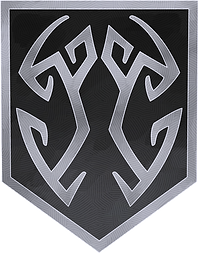
Soldier
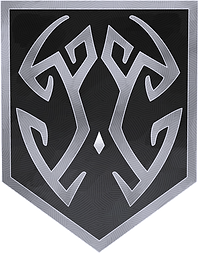
Lieutenant
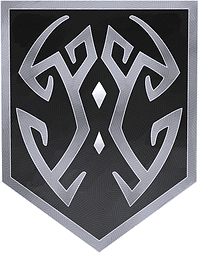
Commander
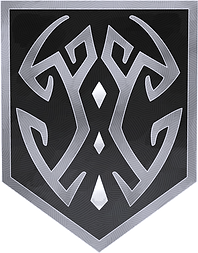
General
Rank
Rank is attained through years of service, ability, and command potential. 5% of the Army are Lieutenants. This rank requires a minimum age of 30 years old, and 10 years of service—though averages at 20 years service before promotion. Commander requires at least 25 years total, and a minimum age of 55. The average age of new Commanders is 75. They make up only 0.2% of the Army.
The rank of General requires 10 years service as a Commander, but it is uncommon for a new General to be younger than 100, thus the typical command experience is much higher.
Attaining rank is a competitive process and not a guarantee of long service. Dragons can live for a very long time and the Army does not encourage retirement... unless they think new blood would do better.
Mandatory Service
Warfang introduced military conscription (not necessarily for the first time) after the Apes destroyed the Shattered Vale Temple in the year 2705. This affected a set percentage of every family, wherein a family was required to submit a relative number of members to do army service. This percentage was flexible, and changed depending on the Army's needs as conflict rose and fell. Service time was indefinite.
In the year 2944, Warfang's fears of war against Farsanct took hold. In addition to the current low percentage conscription, they introduced a mandatory-for-all conscription that would affect every dragon turning 24, lasting two years. This was done with the intent to prepare the full Warfang population for a war that Warfang feared they would not otherwise win, in addition to expediting the invasion of the Shattered Vale for its resources.
When the Dark War did break out in 2970, the 2-year mandatory persisted and countless previous conscripts were recalled to the Army, their previous service allowing a more seamless transition. Warfang also introduced a number of financial incentives and benefits (such as childcare during deployment and discounts on Temple Education) to not only increase retention but reduce resentment over forced service.
The Army continued recalling conscripts as required, but service benefits, propaganda, and fearmongering did their part in keeping the Army's numbers reasonably high.
As conflicts died down due to standstills after the year 3000, the Army released conscripts they no longer needed, but retained the 2-year mandatory. Warfang has not been recalling conscripts to fight across the Vale, but as of mid-3016, has began recruiting willing veterans back into the fold.
While the Army aims to have as few conscripts perish during mandatory as they can, their casualty rate has been significant enough to deter. Some families, if passed for Guard selection, will pay their children out of military service altogether, by ‘giving their worth in coin’. This is legal, and helps fund the war effort. Naturally, this price is too much for most families to pay.
Some dragons may be exempt from mandatory service. This includes dragons who are completely blind, missing two or more non-wing limbs, and case-by-case exceptions for flightless and deaf dragons. Conditions must be so debilitating the dragon becomes a liability.
The percentage conscription made some rare exceptions for very small families where the only physically eligible family member was the only (surviving) child of parents who could have no more children, and the surviving child did not themselves have children yet. There were generally attempts to avoid situations where bloodlines would end if the conscript died. In cases where a dragon had no family, they were not conscripted unless they had no stable trade or were a criminal.
Punishments
Commanders punish soldiers at their own discretion and may decide the nature of said punishments, but overarching rules state they cannot permanently maim or inflict psychological abuse. Sexual assault as punishment (and in general) is also strictly forbidden.
Punishments are most commonly lashings, often paired with docked pay and additional duties, or vice versa. Less common is temporary imprisonment. Refusing food and/or shelter is uncommon, generally not practiced if the soldier is expected to participate in combat soon.
For grievous offenses, such as nearly or successfully killing a fellow soldier, exile and execution are on the table. A Commander considering this would need permission from their General.
Commanders judge what is considered grievous offense. It is in their power to grant second chances. They may choose to ignore offenses, but their General may overrule them and bring their judgment into question, which is undesirable.
Due to the freedom and influence Commanders and Generals have, different Divisions and even the Regiments in them often develop differing cultures. Many Regiments may be more abusive than others, mentally and emotionally if not physically.

Bases
The Headquarters of the Army is the Army Fort in Warfang City, which also oversees First to Third Division as well as the Twentieth Division (Training, Logistics, and Intelligence). Fourth to Eighth Division have their headquarters near Stormfall (Warfang Mainland), Ninth to Thirteenth Divisions near Cliffwall (Warfang Mainland), Fourteenth to Seventeenth Divisions near Stormy Beach (Concurrent Skies), and Eighteenth and Nineteenth Divisions near Dragonfly Falls (Titan Fields).
Regiments, if not entire Divisions, will make temporary headquarters during deployments. For example, there are several Army bases in the Shattered Vale which are used to coordinate with deployed Regiments.
Other Army bases are reserved for training, operations, surveillance, or confidential purposes.
Soldiers are not necessarily assigned to the Divisions of their home continent. This was done in the past, but portals have made long distance travel trivial.
Deployments
Barring personnel required for the operation and preparation of the Army, most soldiers serve on rotation. A typical deployment lasts 3 to 6 Moons, after which the soldier will spend 2 to 4 Moons home. They may have required duties during this time such as training, but they will not be paid. They earn coin throughout their deployments, and as their basic needs are met by the Army itself they do not require this coin to live; it is kept for them until their deployment ends, or picked up by their family at regular intervals.
When a new deployment begins, all soldiers of a Division will receive a summons with a timeframe to present at their Division's Headquarters. They will arrive, be registered, and settle in. Soldiers preparing for deployment sleep in communal tents erected outside the Division's Fort. Their health and abilities are checked and made note of. As the deadline to present passes and all soldiers are ideally accounted for, the Division's Commanders brief them, and the Regiments set out one after the other.
Typically, temporary portals are set up to expedite travel. Regiments haul resources through to restock forts and existing camps and set up new ones if necessary. As fresh Regiments arrive, the old, worn and tired ones return home.
If a soldier does not arrive by the deadline, the Army relays this to the Guard, who is sent to investigate. Soldiers caught draft dodging or dodging deployments are arrested and typically heavily fined; usually assets are seized to pay this. The soldier is then forcibly returned to their Regiment, with a sentence of required years in service and docked pay.
Continued insistent refusal to serve can result in indentured servitude, usually mining, which is often the goal of resistance, however this servitude will last several decades, to whichever point it becomes undesirable.
Armor and Weapons
The Warfang Army does not pay for their soldiers' armor. Armor must be paid for by the soldier or their family, at the blacksmith of their choice. This is expensive, and often a dragon chooses only pieces for their vital areas rather than full armor, if they can even afford that much. Clan dragons are generally recognized by having complete armor—particularly colored armor displaying clan crests. Many soldiers have to make do with their natural defenses.
Dragons typically do not use weapons. Due to their quadruped walk, they are ill suited to hand-held weapons; however, blades may be strapped on or incorporated into armor pieces on the wing hand, tail, head, and forepaws. The only exception to this are lances, which are used by Templars, Guards, and stationary Sentinels. These are deterrents first and foremost, otherwise good for killing one target but less maneuverable for multiple. Dragons generally prefer their Elements (or Magic) for combat, then their natural weapons (claws, teeth, horns, spurs, and tail spades) second.
Unique roles
Not every soldier's primary job is to fight. Below is a list of roles a soldier may take. In formal titles, this role will replace rank, i.e. "Scout Ignies". These roles may have Soldiers and Lieutenants, but not Commanders or Generals. Virtually all new recruits serve two or more years in Infantry, as special roles tend to be filled by career soldiers.
Most of these roles are available to both Soldiers and Lieutenants; the latter in these positions typically lead Platoons. Only Lieutenants from heavy Infantry backgrounds, or Regiment Lieutenants and Second-in-Command Lieutenants are eligible for a Commander promotion.
Hunter
When deployed, Regiments need food. While supplies are brought along, rations are kept as last resorts. Hunters take down prey and forage for edible fruits, vegetables, and roots. This is a full-time job during deployment, and a vital one, so hunters do not participate in combat unless necessary.
Army Hunters typically come from hunter backgrounds and do not require ground-up training. Nevertheless, they are supplemented with extensive teaching of what (in their area) is edible and what's toxic, as well as how to take down certain prey and what to watch out for (such as magic-draining leeches, or acid spitters). The Lieutenant of a hunting platoon is the Head Hunter, unless they designate a subordinate to assume this role in their place.
Navigator
Navigator is another non-combat role. It is a navigator's job to help their commander navigate their Regiment enroute to their destinations, as well as locate optimal camp sites and mapping where they have gone. Navigators need to know how to read and draw maps, plot a course, read the stars and celestial bodies. Every Regiment has at least one senior navigator, and at least two junior navigators.
Scout
Scouts have a dangerous occupation. While not intended for combat, scouts go in small teams or alone to scout enemy territory—assessing their numbers, strength, positions, resources, and defenses. Scouts must be quick, quiet, and cool-headed. They may be spotted by the enemy, or even captured and/or killed. They must be strong enough to have a chance to fight their way out of this possibility, but their main objective is always to avoid confrontations— if spotted, they must try to escape and report back to their Commander. If this entails abandoning fellow scouts, so be it—a scout must be able to make this sacrifice. They must also keep the enemy from finding their Regiment's camp at all cost, whether that means leading pursuers away (even if this means suicide), or to withhold knowledge under gruesome torture.
Healer
Army Healers may be non-combatants, but they will frequently find themselves near the midst of a raging battle. Healers specialize in non-elemental magic to heal wounds. While red magic crystals are effective, they're a limited resource and are kept exclusively for emergencies. During deployment, it is a Healer's job to gather and inventory red crystals, assess and maintain the health of their soldiers, tend to the sick or wounded, and save their soldiers from certain death.
During battle, most Healers stay behind the front lines, tending to the wounded that are brought away from it. Healers need to know how to make fast and often hard decisions—such as letting a young soldier die to instead save a badly wounded Commander, or preserve their energy if saving someone will take too much. Sometimes they may only have time to stop a soldier's bleeding before moving on to the next.
Healers aren't easily distinguished among other soldiers. If the enemy identifies a healer, they WILL target them. If a Regiment loses their healers, the battle may very well be lost. As such, Healers are known by face rather than mark, and have soldiers assigned to them as guards.
Healers are promoted by their ability to handle intense stress, make hard decisions, and by having strong Healing abilities. Promising Healers are given frequent tutoring by Masters employed by the Army in exchange for prolonged service.
Sentry
Sentries are soldiers whose combat prowess is reserved for specific tasks. They may be assigned to a Healer, Commander, or General's side as protection, or they may guard a camp, specific tent (such as a Commander's), supplies, or prisoners. A Commander may send Sentries to the front lines as regular combatants if needed.
Scribe
Another non-combat role, Scribes are Soldiers in charge of putting ink to paper for their Lieutenant, Commander, or General. This may be mission reports, updates, emergency requests, inquiries, etc. Anything their superior wants written, they write. Scribes are quick with a quill, typically by hand rather than magic, often writing down words as their superior speaks.
Lieutenant Scribes are decidedly rare, and usually occupy a dual role as a Regiment or Division's magic caster. These may be able to pen multiple copies of a message at once, and relay them magically with an intermediate spell, which immediately transports the scroll to a location the caster has visited before. If a scribe is not able to cast this spell, a different soldier with Magic prowess may be assigned this task.
Magic Caster
An unofficial role typically assigned to a non-combatant role, usually Scribe or Squire, a Magic Caster is a soldier of notable Magic abilities who can perform Magic where needed, such as magically sending letters or levitating items not easily carried. Due to the rarity of such abilities, these dragons are typically at Division-level and jump between Regiments as needed.
Messenger
Messengers have an obvious role—they ferry letters or commands to a destination, wherever a scribe's magic cannot reach. Often, they receive verbal messages that are too urgent to even write down, and relay them to the recipients. Messengers must be capable of long-sustained and fast flight, and as such is popular with Wind and Electric dragons.
Messenger is a no-promotion role. Messengers are always only Soldiers.
Elite
Elite is not a Regiment role, and exists above even Division-level. A part of the mysterious Intelligence Regiment headed by the General of the Army himself, Elites are sent to venture deep into enemy territory and conduct sabotage or assassinations. They are extensively and cruelly trained, and possess high mastery in either Element or Magic. Some are known publicly by face and name, most are not.
Squire
Squires are Soldiers or Lieutenants in service of a Commander or General. They act as bannerbearers and aides, helping their superiors put on and take off armor (which they are also in charge of maintaining/cleaning), and are otherwise on the ready to do anything their superior asks of them, even menial things such as fetching them food or drink, or cleaning their tents. Commanders and Generals choose their own Squires; typically, Commanders of high family blood are expected to take Squires from allied families.
Squires are at their superior's side almost always, and it's their close one-on-one relationship that makes Squires a target of soldier gossip. Squires are said to cater to all of their superior's needs, including those sexual in nature. Bored soldiers love to ogle and guess whether or not a Squire sleeps with their Commander/General. This is not forbidden, but superiors who abuse their rank against any soldier risks severe punishment.
Knight
Knight isn't a role, but a label of honor. A Dragon Knight is a soldier (or guard) of such high merit they are appointed by the Elder Guardians themselves, and receive the title through ceremony. Knighthood may be awarded to any role, or even posthumously, but it is a rare title to receive. Commander Lynerius is a popularly-known Dragon Knight, though he never introduces himself as such. Generals are always knighted.
the warfang guard
The Warfang Guard

Becoming a Guard is attractive to many; not only is it an alternative to the Army, keeping one away from the battlefields, but it is an avenue to authority and status.
Guards patrol city and town streets. Villages are visited every so often, depending on size and typical need. Small villages, lone homes, and farms are typically not visited as part of patrols—in the case of crimes, these citizens must summon the Guard. The smaller and less patrolled an area is, the more susceptible to animal and raider attacks it is (as a tradeoff, owning land here is less taxed).
In addition to law enforcement, the Guard is meant to protect citizens on Warfang soil; the first line of defense if a settlement is attacked.
In theory.
In reality, the Warfang Guard is known to be corrupt. Because of its power and influence, it is the preferred Military arm for Clans and high society to spend their mandatory service—or their careers. Generally, most recruits apply for the Guard, and most of them are passed over. The Guard has limited spots and a typically low casualty rate, so they are extremely picky on who they select, if any.
Selection
Officially, selection into the Guard is based on performance, ability and suitable personality as a recruit. What’s painfully evident however, is that wealth is the answer. Dragons from rich families and Clans make up the bulk of the Guard’s higher ranks. As such, they select other rich dragons into the Guard—this being a means of gaining and strengthening political relationships. Still, dragons of more humble beginnings can and do join the Guard, but this is often through connections in addition to some or full formal education.
If any slots remain after the political selections are through, the Guard chooses the recruits with the highest scores, especially those with magical potential.
Outside of conscripts, the Guard sometimes hires applicants; but they exercise higher standards here.
They may be bribed to select a certain recruit, but they are greedy. If the bribe is too small, they arrest you for the crime of bribery.
Recruits are selected by Commanders and signed off on by the Sector Chief.
Organization
The Warfang Guard is divided into five Sectors, each commanded by a Chief, who answers to the Chief of the Guard, Isrun of Frostspear—who in turn answers to the Warfang Council. Each Sector is divided into Districts, which are managed by a Guard Commander. Districts are patrolled by Patrols, which are led by Captains, each in charge of at least a dozen Guards.
Warfang City is an entire sector to itself, Sector One. Sector Two is the rest of Warfang Mainland, while the other Sectors are divided between the remaining Warfang Continents.
Sector One is Warfang City (15 districts)
Sector Two is the rest of Warfang Mainland (25 districts)
Sector Three is Titan Fields (25 districts)
Sector Four is Concurrent Skies (25 districts)
Sector Five is Agni Flats (10 districts)
Bases
Each District has a Guard Post, which has an office for its Commander and a number of offices for their Captains as well as their Intelligence and Investigator teams. They also have a Healer's room, and a number of temporary holding cells for arrested criminals. Other facilities may be included (such as a lounge/break room), and size and quality (such as individual offices or shared offices) vary by location.
Districts also have a number of Patrol Checkpoints. These are small buildings with an office for the Captain currently assigned to that area (in addition to the main District office), as well as storage for Dragon Lances, extra armor, and magic gems mainly. Checkpoints aren't always manned.
The Guard headquarters is in Warfang City, the Guard Keep in District 4.

Guard
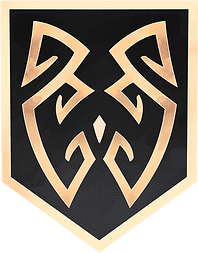
Captain
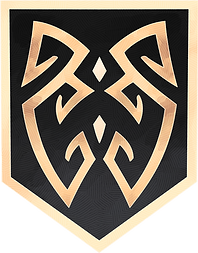
Commander
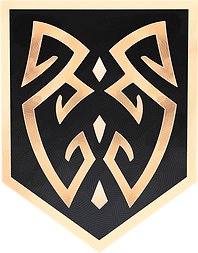
Chief
Rank
There are 6 Chiefs, one for each Sector, plus the Head of the Guard. There are 100 Guard Commanders, one for each District, plus a number of additional Commanders who occupy different roles and tasks, not managing Districts but rather Guard Operations and Intelligence. Like the Army, Captains make up about 5% of the Guard.
Rank is attained through years of service, ability, and command potential, as with the Army, but nepotism is more prevalent in the Guard. The Captain rank requires a minimum age of 30 years old, and 10 years of service—though averages at 25 years service before promotion. Commander requires at least 25 years total, and a minimum age of 55. The average age of new Guard Commanders is 85. They make up only 0.2% of the Guard.
The rank of Chief requires 10 years service as a Guard Commander, but it is uncommon for a new Chief to be younger than 110, thus the typical command experience is much higher.
Attaining rank is a competitive process and not a guarantee of long service. The Guard will typically encourage retirement—or at times force it—to allow others to rise in rank. This affects Clan dragons as well. Despite its corruption and nepotism, the Guard still desires good performance, so mediocre (or ones disturbing the status quo) officers are cycled out early to make way for someone better. The longer a dragon has held upper ranks, the better their performance has been.
Corruption
The Guard functions the way it is supposed to. As Clans rose in power and influence, over time the Guard became theirs. Above all, it serves and protects the interests of Clans and high society. In addition to the benefits of serving one's mandatory service here, the Guard turns a blind eye to the crimes of high society—provided the victims of said crimes is not also among high society, much less Warfang itself.
Much of high society dabbles in illegal enjoyments; crime syndicate fighting rings, person trafficking, black markets, illegal slavery, and hiring various services, such as assassinations in extreme cases. High society individuals do not spearhead organized crime or run it; they are benefactors and customers, shaking hands with its leaders behind the curtain. Officially, to the public eye, high society upholds an image of morals and lawfulness—but Warfang's Underworld is frequented by many, if not most, of Warfang's highest offices (of course, there is a standard to their depravity, deeper levels of crime that is not acceptable even behind the curtain—high society does not like their crime to be bloody (beyond fighting rings), there must be room to excuse it. Anything else is kept far more private and unknown to their peers).
The Guard, of course, allows this. It may even accommodate it.
In conflict, the Guard typically takes the side of those with higher status, especially if the status gap is significant. The Guard is averse to arresting Clan dragons and dragons of high families, but if grievous enough, and the arresting Guard is themselves superior in status to the offending dragon, arrests do happen. It is encouraged to not display grievous favoritism; the Guard does not want the inequal treatment to be too overt, which may cause (and has caused) civil dissent.
In cases where a crime is committed in high society, wherein the victim(s) is also a part of high society, the Guard typically has a hands-off approach, allowing high society to settle things behind closed doors (if the victims so choose), whether that is through the compensation of coin, an eye for an eye, or blood payments. This 'courtesy' is not extended to other citizens.
The Guard's corruption is maintained in such a way that the average non-high society dragon is not fully aware of the corruption. Many will be aware of favoritism, but will know of public spectacles wherein even Clan dragons have been fairly judged (that is, executed). If high society cannot make a problem disappear, they will make an example of it. If someone of high blood gains infamy, especially in bloody crimes, civil peace will be upheld. As such, there are many, especially in the middle class, who are blind to the true extent of the Guard's corruption. Most may not like the Guard, but will respect them.
Shifts
Guards do not deploy. They are responsible for arranging their own living and food, but are paid more. They must live in the area they are assigned to (if possible, they are assigned to the area they already live in). They have year-round shifts, with variable amount of days off per week (depending on need, usually two) and with the ability to take unpaid vacations (does not apply to conscripts). Commanders and Chiefs have access to more vacation days and flexible schedules, but typically work more than required (if they want to not be cycled out early).
Guard shifts are either morning, day, or night. These are typically 9 hours but often stretch to 11 or 12.
Shifts begin at their District Headquarters, where their Patrol is briefed on their shift route or duty by their Captain. Shifts may end here as well, but it's not uncommon for Captains to dismiss Guards on the spot, at which point they can return home immediately.
Captains manage their patrols. Patrols are divided into multiple smaller groups. Guard patrols are always at least two at a time; Guards should never be alone. Patrols circle around their route (unless stationary) and report back to their Captain before restarting their route. Stationary Guards send a messenger if needed, otherwise the Captain checks up on them periodically.
In turn, Commanders check in periodically with Captains, and are expected to perform patrols of their own; ensuring Guards do their job, but also to change patrols on the fly where needed. For example, if a market is unexpectedly busy, they may divert more Guards to watch over it.
Armor and Weapons
The Warfang Guard requires some armor; a headpiece, neck protection, and a collar displaying the Guard insignia and rank. Greaves may be used, but are not paid for by the Guard. Guards do not wear full armor, but may change into more armor if needed (and if they have it). The headpiece is mandatory for Guards on duty, but not for Captains, Commanders, or Chiefs.
Guards do not patrol with dragon lances; they may be equipped by stationary Guards, but are otherwise set aside for the Guard to arm themselves with when needed.
Unique roles
Like the Army, the Guard also has unique roles in their ranks. The standard role of the Guard is to patrol the streets and ward against crimes, investigate and arrest when crimes do occur, and protect settlements and cities. Guards in their mandatory years do not have specialized roles and typically only patrol, while senior Guards handle everything else. Other roles include;
Investigator
Investigators are called to crime scenes and are tasked with finding out what happened, how it happened, and who is responsible. They may take additional statements from witnesses and victims and will build a profile on the perpetrator. Investigators are usually only called where a deeper look is needed, or pushed for. If someone was pickpocketed in the markets, regular guards will just make note and report it. Investigators are called where there is a crime scene and standard Guards are not sufficient. Most of the time, Investigators will find what clues there are and speak to who they can, but if there were no witnesses or suspects then the case is reported and shelved until another crime occurs and yields new information. When it comes to Clans and higher society, Investigators are often pushed much further. If a crime was significant or especially grievous, Investigators are always dispatched.
Intelligence
Intelligence Guards rarely take to the streets, keeping to their offices where they hoard information pertaining to their Districts; businesses, citizens, and criminals alike. They sort and compare reports and cases, and keep track of all the inner workings of their District or Sector—including that of organized crime. In short, if there's any information the Guard might need, their intelligence offices either have it, or they have a parchment that confirms they don't have it. When more information is needed on something, senior Intelligence Guards find it. They may even work undercover, pay off criminals, or hire criminals to attain this information—with their Commander's approval.
There are different levels of confidentiality to the information the Guard stores, and any given Intelligence Guard cannot access any or them all. Privacy is not a concern, but information leaks are, especially when it comes to information pertaining to Clans or other high-profile individuals. Mid-level confidentiality information can only be accessed by a handful of Captains in Intelligence, higher levels have to be attained by the sector's Commander of Intelligence, and the highest level of confidentiality has to be retrieved by the Chief of the Sector.
All information is stored in vaults with Master-level enchantments, with copies at different locations.
Warden
Sometimes crime does not warrant execution, but also requires more than immediate physical/financial punishment—or criminals need to remain detained during investigation, especially if they are facing execution. In these situations, there are dungeons guarded full-time by special guards, Wardens.
Wardens are in charge of guarding prisoners, sentenced or otherwise, transporting them to and from cells, and delivering them food. This is an assignment, and a guard may be in this role for a year or more until they can be considered for a change, but it's also a role someone can stay in their whole career. There is very little opportunity for promotion in this role however. There are dungeons in all major cities, then a few outside the cities for all other settlements in the sector. Most are commanded by a single Captain, who reports to the Commander of their given District.
Criminals are not incarcerated long-term. This is an unnecessary financial strain. Reform is not a concept for many.
Sanctuary Warden/Guard
A special group of Wardens are the Sanctuary Wardens. These have the same duties as regular Wardens, but they guard only one place; Sanctuary, the home of dark dragons on Warfang land.
Becoming a Warden for Sanctuary is highly selective and eerily absent of Warfang's nepotism. Firstly, they can only be ice dragons, due to the extremely low temperatures of the deadly, eternal blizzard that surrounds the Sanctuary island (a result of an ancient Elemental's suicide fury).
Secondly, their mastery of Ice must be at least Class Four but is often higher. Exceptions are made for those with magical mastery, but this minimum requirement is Class Five.
Similarly to Templars, Sanctuary Guards are invited rather than applied for. They go through a recruitment process where they are thoroughly assessed. They cannot have 'misplaced' sympathy for dark dragons, and they must be able to follow orders no matter what. Sanctuary Wardens are often compared to Templars as a result.
The Sanctuary Commander has always been a Frostspear, as have many of its Captains and many of the Guards. No one knows exactly what happens in Sanctuary, as its wardens are bound by strict orders of non-disclosure.
The promotion rate of Sanctuary Wardens are virtually stagnant, with promotions only happening if a Captain or the Commander resigns from the role or from the Guard or dies. If this happens, another Sanctuary Warden is selected for promotion. Due to the slow rate of promotions, and the 'inherent danger' of working with dark dragons, Sanctuary Wardens have a high bonus to their salary.
Not every recruit is sent to Sanctuary itself. Some become Sanctuary Guards, who patrol outside the Undying Blizzard. They chase away overly curious citizens, but most notably, they watch for dark dragons trying to find a way in.
Executioner
Due to the costs of incarceration, most grievous crimes are punished by execution. For this, the Guard has a special role, executioner. This is not a full time role, but an addition to the standard Guard or Warden role. The role of executioner is applied for, and executioners are chosen with selectiveness that varies depending on demand and competition. It gives a Guard a bonus to their salary, on account of the dangers of being an executioner, as associates and families of the executed may target the executioner. Maintaining anonymity is difficult for dragons, as they have so many varying identifiable qualities. This makes Executioner an undesirable role for many, and the salary bonus of executioners rise and fall with demand. Most executions are not public anymore, unless there is an example to be made.
Commanders and Chiefs cannot be Executioners, and promotion into these ranks removes the role of Executioner.
